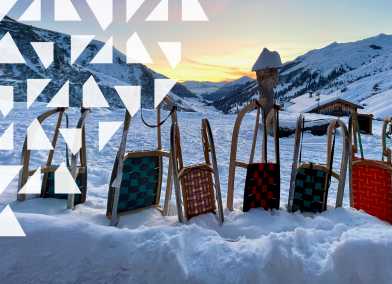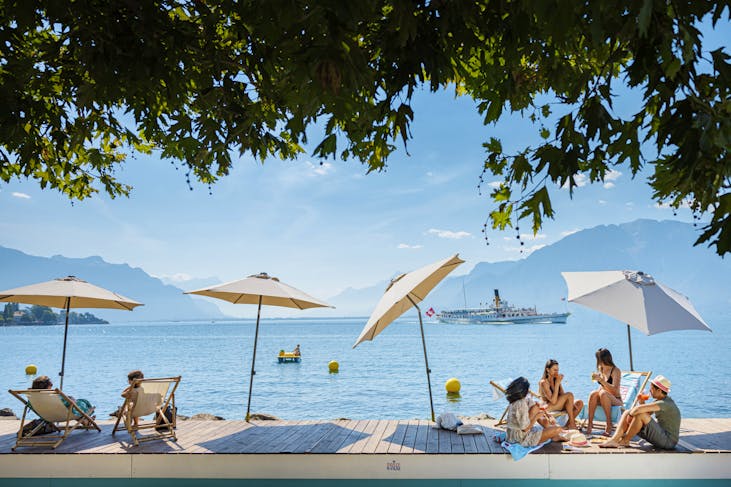- Organizations
- Federal Statistical Office...
- Swiss tourism statistics...

Swiss tourism statistics 2021

Description
This publication describes the results of the FSO's Swiss tourism statistics for 2021. The first part focuses on tourist accommodation that is partly made up of the hotel sector statistics and partly of the supplementary accommodation statistics. The second section of this publication concerns the survey on the travel behaviour of the Swiss population in 2021. The tourism satellite account, in the third section, gives information on the values measuring the economic influence of tourism in Switzerland. The fourth section of the publication presents a series of economic indicators making it possible to place the findings from the tourism statistics in a wider context.
- XLS Swiss tourism statistics 2021 More information Download
- HTML Swiss tourism statistics 2021 More information Go to resource
- PDF Swiss tourism statistics 2021 More information Download
- XLS Schweizer Tourismusstatistik 2021 More information Download
- PDF Schweizer Tourismusstatistik 2021 More information Download
- HTML Schweizer Tourismusstatistik 2021 More information Go to resource
- HTML La statistique suisse du tourisme 2021 More information Go to resource
- XLS La statistique suisse du tourisme 2021 More information Download
- PDF La statistique suisse du tourisme 2021 More information Download
Additional information
Got questions.
Ask the point of contact directly
Related datasets
- Swiss tourism statistics 2022
Get involved
- Terms of use
- Legal framework
Find Tourism Data
Explore our tourism metadata catalogue. Search and filter through our catalogue to find the information about the tourism data you need.

Data Sources
Organizations, tourism data search, look for tourism datasets, type in keyword in english to search for tourism data, look through the list of tourism datasets.

Points of IntErests (POIs) and Routes
Information about specific point locations that tourists may find useful or intresting, including their geographical coordinations and accessibility.

Search and Web Traffic Data
Information on websites and their number of visitors, users, clicks, duration of the visits, and the trends derived from all of this information.

Research and Consulting
Analysis and forecasts prepared by the research institutions, consulting companies, industry associations.

Transaction Data
Data about transaction made, including reservations, current occupancy rates, sold services, payments.

Traffic AND Mobility Data
Data about the traffic at airports, railway stations, tourism destinations. Information about number of visitors in selected places.

Tourist-related data
Data refering to the tourists, for example data from CRM systems, communication data, mobility data.

Tourism Environment Data
Data on tourism environment understood as external factors influencing tourism, e.g. weather, climate, holiday calendar, condition of infrastructure.
Tourism Offer Data
Information about the tourism offerings, including opening hours, availaibility, prices, description, pictures and videos.

User-Generated Content
Content created and shared online by the customers, tourists in form of text, videos, images, reviews.

Tourism data applied in use cases
The future of data in tourism is vast and promising. However, it is important to remember that if tourism data is not used strategically and effectively, it has no value. Data has the power to revolutionize the way the tourism industry operates, from the way destinations are marketed to the way travellers plan and book their trips. With our use cases, we try to show what current challenges can be solved with the use of tourism data. The list of use cases will grow with time. Below you will find the list of use cases we are currently working on.
Visitor behaviour analysis
Dashboard - swiss tourism in figures, data donation acceptance study, want to contact us.
Please get in touch with us with any questions regarding the project, our data inventory or ideas for further use cases.
Read our blog
Discover the world of tourism data. From data sources and standards to practical applications, our blog is dedicated to educating and informing those interested in using data in the tourism context. Visit our blog for more in-depth insights and expert analysis on the role of data in tourism.

This website was created as part of Resilient Tourism Project (Suproject 1: - National Data Infrastructure for Tourism). Resilient Tourism is one of 15 flagship projects approved and supported by the Innosuisse- Swiss Innovation Agency. Flagship projects are systemic and transdisciplinary innovations that are central to current and future economic and social challenges in Switzerland.
- Press Enter to activate screen reader mode.
KOF Swiss Economic Institute
Kof forecasts of tourism in switzerland.
Tourism is an important pillar of the Swiss economy, especially at regional level. Long-term trends and changes in the guest structure are of great importance for these regions. Therefore, it is critical to recognise changes at an early stage.
KOF has built up a broad knowledge base in the field of tourism over several years and has continuously improved and expanded its forecasting methods. The tourism forecast is based on a large number of macroeconomic variables developed by experienced researchers in the areas of inflation, the labour market and economic growth. In addition, high-frequency indicators are used to forecast the logistic demand.
Twice a year, at the beginning of the summer season in May and at the beginning of the winter season in October, the results of the KOF Tourism Forecast and selected international tourism indicators are published.
Trend in overnight stays (including forecast)
Summer season (xlsx)
Winter season(xlsx)
Tourism year (xlsx)
KOF Tourism Forecast: solid visitor numbers in winter
- KOF Tourism Forecast

- All contributions
- Focus on tourism
- Test your knowledge
- Market topics
- Organisation
- Marketing strategy
- Financial statements
- Social media
- Swisstainable
- Swissainable-en
- Hotel overnight stays
- Main issues in tourism
- Key Account Management
- Netherlands
- Recovery campaign
- Partnership
- Partner projects
- Grand Tour of Switzerland
Search: enter your search query
Help us find stories for you
Climate change and tourism
Global climate change is a fact. The tourism industry is rising to the challenges and taking responsibility.

Guests in Vevey sought to cool off by the lake during the record summer of 2022.
Find out more about:
In 2022, Switzerland experienced record summer temperatures, which also had a direct impact on Swiss tourism. Never before have Swiss rivers been this warm, with some even drying up almost completely. The Lake Constance Navigation Company was forced to suspend operations between Rorschach and Rheineck. In Zermatt, the cable cars and mountain railways discontinued summer ski operations due to the lack of glacier snow. Some SAC huts face potential closure over the coming years since the thawing permafrost is causing the rock masses on which the huts are built to slide. Such extreme weather phenomena have become more frequent in recent years, confirming the fact that climate change is indeed caused by mankind. The “Federal Tourism Strategy” therefore lists climate change as one of the five most important challenges for Swiss tourism.
Tourism as the fifth most important export industry
But anyone who lapses into overly zealous activism in the face of the numerous challenges is acting just as poorly as someone who simply does nothing. Making up almost 5% of foreign trade, tourism is Switzerland’s fifth most important export sector. In mountain destinations in particular, many jobs depend on tourism, whether directly or indirectly. Unilateral bans, as demanded by some politicians, fall short, endanger these jobs and therefore cannot be reconciled with the overarching idea of sustainability. Smart, holistic initiatives and measures are more effective. These always consider geographical conditions, as the effects of climate change vary greatly from region to region. The same applies to the opportunities that open up for Switzerland at an international level and for the various destinations at a regional level.
Innovative, responsible, Swisstainable
In the third quarter of 2022, the Federal Office of Civil Aviation (FOCA) counted a total of 13.7 million arriving and departing passengers (local and transfer passengers) in scheduled and charter traffic. This corresponds to 62% more than in the same period of the previous year. Although still 18% below 2019 pre-pandemic levels, the marked increase shows how great the demand on air travel is.
International tourism without air travel is therefore unrealistic; international aviation cannot be unilaterally influenced by the Swiss tourism industry. On Swiss soil, however, the industry can take the reins. Here, Switzerland Tourism ST ensures a longer duration of stay as well as a geographic and seasonal diversification of visitor flows. The entire industry is committed to measures and approaches that can basically be assigned to the following two action areas: slowing down climate change by avoiding greenhouse gases, and adapting to climate change by means of new, holistic strategies. The Swisstainable movement belongs to the latter: it intends not only to ensure the survival of tourism service providers, but also to ensure nationwide prosperity in the long term, despite climate change.
In addition to various measures and campaigns within the framework of the Swisstainable movement, the programme of the same name forms the centrepiece. Both experienced pioneers and those just venturing onto this journey can take part, with three levels of recognition available, and show their commitment to sustainability with the Swisstainable insignia. After all, a strong position with respect to sustainability is increasingly becoming a competitive advantage, and Switzerland offers all the prerequisites to achieve this.
Reducing greenhouse gases in tourism
Reducing harmful greenhouse gases in all areas of life nevertheless remains essential – whether thanks to more climate-friendly energy sources or through our own mindful consumption. This is where the economy is called upon to develop innovative products. The ski destination of St. Moritz provided an excellent example of this for the first time during the 2022/23 winter season: In the ski resorts, all diesel vehicles, construction machines, 36 snow groomers and 65 service vehicles run on a CO 2 -neutral diesel, the GTL (Gas-to-Liquids) Fuel Alpine. All service buildings, businesses and restaurants are also heated with the CO 2 -neutral heating oil, GTL Fuel Heating. In addition, Swiss International Airlines (SWISS) is the first scheduled airline to fly from Switzerland with SAF (Sustainable Aviation Fuel), a synthetically produced kerosene, from 2021. What makes this so special is that carbon from existing sustainable biomass or gases is reused and converted into fuel. SAF is thus a genuine alternative to fossil kerosene.
At the same time, a significant degree of personal accountability is required – whether in people’s private lives or in the world of business. The “Swisstainable Veggie Day” conducted by ST, a project of ST’s Swisstainable movement, showed how personal responsibility can be promoted with an initiative.
Despite the challenges posed by climate change, with which the Swiss tourism industry was confronted in 2022, it tackled its responsibilities and took ownership in 2022. Keeping at it will pay off sooner rather than later.
Read other stories

Winter tourism is changing
A longer autumn, less snow, declining guest numbers. New ideas for the winter season are both welcome and needed.

Indulgence without compromise
The first Swisstainable Veggie Day was very well received throughout Switzerland, by both restaurants and guests.

Book Swisstainable worldwide
Thanks to partnerships with significant global travel companies, Swisstainable offers can now be booked directly worldwide.

In focus 2022

A road trip with Roger Federer
The tennis star promotes the Grand Tour of Switzerland together with actress Anne Hathaway – and breaks all records.
New market structure
Switzerland Tourism restructured the markets, strengthening agility and resilience for times of crisis.
Short-haul guests are back
Hotel overnight stays from short-haul markets have almost returned to pre-pandemic levels, with several reasons for this.
Key indicators for 2022
The most important key indicators for the year at a glance.
This is the Annual Report 2022. You will find the Annual Report 2023 here .
- Hospitality Industry
Tourism in Switzerland: A successful summer 2023 for the Industry

September 21, 2023 •
4 min reading
The latest figures released by the Federal Statistical Office (FSO) have put even more spring in Swiss tourism’s step. Night stays in Switzerland for the months of June and July 2023 were recently published. And the news is good! Night stays (or hotel stays) were 8.6% higher in June 2023 versus June 2023. This confirms an earlier report indicating that in the first half of 2023, night stays increased 13.8% year on year.
Numbers recently published by the OFS show that night stays were up 4.5% in July 2023, compared with July 2022, driven by foreign demand (+14.9%). Domestic tourism was down ever so slightly (-0.8%), confirming the trend.
For SECO, the State Secretariat for Economic Affairs, the trend for Switzerland is even rosier regarding the return of international tourists. In the six months to June 30, 2023, Switzerland recorded a whopping y-o-y increase of 33% in overnight stays by foreign travelers.
For SECO, night stays are projected to surpass pre-Covid levels for the first time, on the back of a slight rebound in Asian demand in particular. Inflation, which has eroded buying power (particularly in Europe and the United States), combined with the strength of the Swiss franc have kept a lid on the enthusiasm, however. The UK is the lone bright spot for otherwise soft European demand. However, Chinese visitors to this Alpine country have not returned in numbers comparable to those seen before Covid.
Night stays are almost evenly split between foreign and domestic tourists. In the first half of 2023, Swiss residents accounted for 12.2 million overnight stays, with the remaining 11.9 million (+28.7% y-o-y) coming from foreigners. In all, tourism accounts for roughly 5% of Swiss GDP.
Swiss Tourists Habits: A view from the field
“While the Swiss are travelling abroad again, even more often than in pre-Corona times, foreign guests are also travelling to the Engadin Valley again,” said Jan Steiner, Brand Manager Engadin. His Alpine resort, which includes the posh ski town of Saint-Moritz, recorded a slight y-o-y increase of 0.3% in May and June. This bodes well for the summer months, but much depends on the weather, he said.
For Jay Gauer, the director of the Trois Couronnes, a five-star hotel located in Vevey, Switzerland, “this year, Swiss tourists are travelling to other countries.” Indeed, the Swiss tend to vacation abroad, particularly Italy and France—where hotels and restaurants are markedly less expensive—during the summer months. Throughout the pandemic, the Swiss, however, were compelled, by travel restrictions—and encouragement by Roger Federer himself—, to further explore their own country.

A word of caution about strong summer data
But pent-up wanderlust and swollen travel budgets have sent the Swiss packing their bags for foreign destinations once again. While the season appears to be a good one, “without data on hotel stays for July and August, it is too early to draw conclusions,” Gauer cautioned. Gauer spearheaded a post-Covid initiative, called Dolce Riviera , to promote lakeside leisure activities and local restaurants in Switzerland’s “Riviera” area, which has been a crowd-pleaser for both tourists and locals.
Sergei Aschwanden, Director of Tourism of the Alpes Vaudoises (covering the Villars-Gryon ski resort), also cited many of the same factors that have kept Summer 2023 numbers in check: the strong Swiss franc, iffy weather in July and the decision by many Swiss holidaymakers to travel abroad on vacation. Yet, he said: “hoteliers are quite satisfied”. Even though initial numbers in his resort pointed to a 5% slowdown in night stays versus the summer of 2022, last year “was an exceptional season, with very sunny weather.” He mentioned a different factor that has the resort smiling: an increase in visitors in early fall. Indeed, summer is powering well into late September because of climate change and a new phenomenon that has taken Swiss ski resorts by storm: the Magic Pass. With more and more tourists around the world booking during ‘shoulder season’ to escape the heat, crowds and high prices of summer, some have questioned whatever happened to the off-season ? The popularity of the four-season lift pass has encouraged more and more visitors to take the chairlifts up to Alpine summits and descend the resort’s trails on foot or mountain bike.
Chinese Tourism in Switzerland: Where have all the tourists gone?
Where there were 133,769 Chinese who visited Switzerland in July 2019, only 46,167 visited in July 2023 (-97%). The tourism office in Lucerne, which has been a popular destination for the Chinese, has spoken, perhaps somewhat euphemistically, of a “transition year” in 2023. Yet, it is hard to imagine Chinese tourism returning to pre-Covid levels anytime soon.
“To me it’s not surprising to see Swiss tourism performing well, said Yong Chen, professor of economics at EHL Hospitality Business School, before cautioning “China is starting to come back, but I’m not that optimistic about how many tourists will come back and when.”
“The Chinese economy is not doing well”, Prof. Chen stated matter-of-factly. Despite the re-opening of direct flights between Geneva and Beijing, airfares, according to prof. Chen, have doubled or tripled and flights are relatively empty. He cited a recent flight in August where the plane was two-thirds empty. “It’s the first time I’ve seen a hub-to-hub plane so empty.” Dr. Chen doesn’t expect a complete recovery of Chinese tourism in Switzerland anytime soon as the Chinese economy struggles, discretionary consumer spending stalls and the geopolitical situation grows increasingly hostile.
“Given the tone of the present decade, tourism cannot thrive or even survive in an environment where there is so much tension.” Indeed, Chinese tourists have been few and far between in Switzerland since Covid. During the first four months of 2023, the number of Chinese visitors to Switzerland was down 87% and night stays dropped 68% compared to the same period in 2019 (a record-breaking year by almost all accounts). Administrative hurdles in China, including long waits for passports and Schengen visas, are exacerbating matters.
While it appears that Swiss tourism has enjoyed a strong summer, it remains to be seen how the impact of plummeting Chinese demand, along with other headwinds, will play out in the long run.

EHL Research Content Editor
Keep reading

Guest experiences: Importance of emotional engagement and culture
May 15, 2024

Creating memorable guest experiences: Personalization with storytelling
May 08, 2024

Hospitality management careers list for hotel enthusiasts
May 07, 2024
This is a title
This is a text
- Bachelor Degree in Hospitality
- Pre-University Courses
- Master’s Degrees & MBA Programs
- Executive Education
- Online Courses
- Swiss Professional Diplomas
- Culinary Certificates & Courses
- Fees & Scholarships
- Bachelor in Hospitality Admissions
- EHL Campus Lausanne
- EHL Campus (Singapore)
- EHL Campus Passugg
- Host an Event at EHL
- Contact our program advisors
- Join our Open Days
- Meet EHL Representatives Worldwide
- Chat with our students
- Why Study Hospitality?
- Careers in Hospitality
- Awards & Rankings
- EHL Network of Excellence
- Career Development Resources
- EHL Hospitality Business School
- Route de Berne 301 1000 Lausanne 25 Switzerland
- Accreditations & Memberships
- Privacy Policy
- Legal Terms
© 2024 EHL Holding SA, Switzerland. All rights reserved.

Sustainable Tourism in Switzerland

Sustainable Tourism
Recycling Public Transportation Outdoor Activities Drink Tap Water Renewable Energy Sources
Car-Free Resorts Swiss Travel Pass
Hiking + Biking Skating + Water Activites
Responsible Travel - Sustainable Tourism in Switzerland
Being a responsible traveler entails actions that can easily be included in Switzerland. From using public transportation to selecting your hotels wisely; opting for outdoor activities and reducing your consumption of single use plastic. All these little steps will allow you to leave a positive environmental footprint on our planet and Switzerland has all the tools to make it happen.
As a global leader in sustainable tourism, Switzerland ranks first on the Environmental Performance Index (EPI). The big cities like Zurich, Berne and Geneva have been praised repeatedly for its sustainability skills. Apart from improving the environment, the Swiss are also leaders in recycling and are committed to the 3 R’s (Reduce, Reuse and Recycle). Organic waste gets composted and what cannot be recycled gets combusted to energy. Adapting to these practices in Switzerland is easy and you will leave a positive impact while traveling without even noticing it.
A good way to minimize CO2 emissions and to responsible travel is to use public transportation as much as we can, wherever we can. Fortunately, Switzerland has one of the most efficient public transportation networks in the world and the best part, it is eco-friendly! Thanks to the density of its net you can explore Switzerland hassle free by train, boat or postal bus. All three are well synchronized and will guarantee you a wonderful experience! Aside from the environmental benefits it creates, the ticket prices for the Swiss rail system are reasonable, especially for foreign travelers. Including discounts and numerous perks, the Swiss Travel System is the preferred method of transportation, even for the Swiss themselves. Book your Swiss Travel Pass online and take your first step to become a responsible traveler!
Switzerland stands out in the world for its stunning nature. The beauty of the Alps and the turquoise lakes between the mountains are constantly attracting photographers and adventurers. These natural wonders also permit gentle tourism to be practiced. Hiking , biking , skating and even some water activities can enhance your vacation without leaving a negative impact on the environment. Plan your own leisure tour with the guidance of the fabulous Switzerland Mobility platform – a network for non-motorized activities around the country. Choose your favorite activity and a region and discover the outdoor paradise Switzerland represents.
Another gift of nature in Switzerland is water. It meets very high standards of quality and groundwater protection zones make it possible to distribute water without having to treat it. This is a great benefit not only for everyone hydrating in Switzerland, but also for the environment. You can safely drink water from every tap (unless marked not safe for drinking), meaning that you can bring your reusable bottle and fill it up anytime. This way you will be traveling responsibly and will avoid single use plastic during your vacation.
Another point to take into consideration while traveling responsibly is to select your hotels wisely. Many hotels in Switzerland are dedicated to sustainable tourism. This means that they monitor water and electricity consumption, use renewable energy sources, reduce waste or use regional products. Also, opt for local-owned hotels instead of big chains. Supporting local economy and communal organizations is part of the sustainability skills you can implement while traveling.
Switzerland is proud of its car free resorts which are yet another great option to travel gently and practice sustainable tourism! Besides, it is a great experience that cannot easily be found in other countries around the world.
Responsible travelers blend in and leave a positive footprint wherever they go. Magic Switzerland encourages you to immerse yourself in every destination you visit in Switzerland and in any other country. Know the culture, be conscious, raise awareness and travel responsibly. Enhance your own understanding of our world with exploration and discovery while at the same time you decrease your travel footprint. And remember, small changes eventually add up!

What to do in Switzerland Best places to visit Car-free destination Swiss Alps Transportation in Switzerland Swiss Rail Passes Scenic Trains Switzerland sample Itineraries Vacation Planner Grand Tour of Switzerland


Tourism in Switzerland
Disclaimer: Some posts on Tourism Teacher may contain affiliate links. If you appreciate this content, you can show your support by making a purchase through these links or by buying me a coffee . Thank you for your support!
Tourism in Switzerland is big business. But why is this industry so important and what does it all mean? Read on to find out…
Tourism in Switzerland
The geography of switzerland, the tourism industry in switzerland, statistics about tourism in switzerland, the most popular tourist attractions in switzerland, the most popular types of tourism in switzerland , the economic impacts of tourism in switzerland, the social impacts of tourism in switzerland, the environmental impacts of tourism in switzerland, faqs about tourism in switzerland, to conclude: tourism in switzerland.
Switzerland, nestled in the heart of Europe, is renowned for its stunning alpine landscapes and precise craftsmanship. This article unpacks the intricacies of Switzerland’s tourism sector, discussing its paramount importance to the national economy, while spotlighting the charm of its snow-clad mountains, luxurious watchmaking towns, and multicultural cities.
Switzerland is a landlocked country located in Central Europe. Here are some key points about the geography of Switzerland:
1. Location: Switzerland is situated in the heart of Europe and is bordered by Germany to the north, France to the west, Italy to the south, and Austria and Liechtenstein to the east.
2. Landscape: Switzerland is known for its stunning mountainous landscape. The Swiss Alps dominate the southern part of the country, while the Jura Mountains stretch along the western border. The Swiss Plateau, with its rolling hills and fertile plains, occupies the northern and central regions.
3. Alps: The Swiss Alps are one of the most prominent mountain ranges in the world and cover about 60% of Switzerland’s total land area. This region includes famous peaks such as the Matterhorn, Eiger, and Jungfrau. The Swiss Alps offer breathtaking landscapes, skiing and snowboarding opportunities, and picturesque alpine villages.
4. Lakes: Switzerland is also known for its beautiful lakes, which dot the landscape throughout the country. Lake Geneva (Lac Léman), Lake Zurich, Lake Lucerne, and Lake Maggiore are among the largest and most popular lakes in Switzerland. These lakes provide scenic beauty, water-based activities, and charming lakeside towns.
5. Rivers: Several major rivers flow through Switzerland, including the Rhine, Rhône, and Aare. These rivers not only contribute to the natural beauty of the country but also offer opportunities for river cruises, water sports, and picturesque riverside walks.
6. Climate: Switzerland has a varied climate influenced by its diverse topography. The high Alpine regions have a cold and snowy climate, while the lower areas experience mild summers and cold winters. The climate is also influenced by the Mediterranean in the south and the continental climate in the north.
7. Biodiversity: Despite its small size, Switzerland boasts significant biodiversity. The varied landscapes support diverse ecosystems, including alpine meadows, forests, wetlands, and glacial regions. The country is home to numerous plant and animal species, including chamois, ibex, marmots, and various bird species.
8. Natural Parks: Switzerland has several national parks and nature reserves dedicated to preserving its natural heritage. These protected areas, such as the Swiss National Park and the Aletsch Glacier, provide opportunities for hiking, wildlife viewing, and nature conservation.
9. Transportation: Switzerland has a well-developed transportation infrastructure, including an extensive network of trains, cable cars, and roads that make it easy to access different regions of the country. The famous Swiss railway system is known for its efficiency and scenic routes.
10. Tourism: The unique geography of Switzerland, with its mountains, lakes, and charming towns, attracts millions of tourists each year. Visitors come to enjoy outdoor activities such as skiing, hiking, and mountain climbing, as well as to explore cultural attractions, historical sites, and picturesque landscapes.
Overall, Switzerland’s geography offers a diverse and breathtaking environment, making it a popular destination for nature lovers, outdoor enthusiasts, and those seeking picturesque scenery.
Switzerland has a thriving tourism industry and is known worldwide as a popular travel destination. Here are some key aspects of the tourism industry in Switzerland:
1. Scenic Beauty: Switzerland is renowned for its stunning landscapes, including the majestic Swiss Alps, picturesque lakes, charming towns, and lush green valleys. The country’s natural beauty attracts visitors from around the globe.

2. Outdoor Activities: Switzerland offers a wide range of outdoor activities throughout the year. In winter, skiing, snowboarding, and snowshoeing are popular, with world-class ski resorts such as Zermatt, Verbier, and St. Moritz. In summer, hiking, mountain biking, paragliding, and water sports on the lakes are among my favourite activities.
3. Cultural Heritage: Switzerland has a rich cultural heritage that attracts tourists interested in history, art, and architecture. The country is home to numerous castles, museums, art galleries, and UNESCO World Heritage sites. Cities like Zurich, Geneva, Lucerne, and Bern offer a blend of historical and modern attractions.
4. Wellness and Spa Tourism: Switzerland is famous for its wellness and spa resorts, offering relaxation, rejuvenation, and therapeutic treatments. Places like Baden-Baden, Davos, and Leukerbad are renowned for their thermal baths, wellness retreats, and health resorts.
5. Culinary Experiences: Swiss cuisine is known for its cheeses, chocolates, and other delicious specialties. Visitors can enjoy authentic Swiss dishes, wine tasting, and culinary tours. Additionally, Switzerland has a strong tradition of fine dining, with many Michelin-starred restaurants.
6. Adventure Tourism: Switzerland attracts adventure seekers with activities like mountaineering, rock climbing, canyoning, and glacier trekking. The country’s challenging terrain and well-maintained infrastructure make it an ideal destination for thrill-seekers.
7. Rail Journeys: Switzerland is famous for its scenic rail journeys, offering breathtaking views of the Alps, lakes, and countryside. The Glacier Express, Bernina Express, and GoldenPass Line are popular train routes that provide unforgettable travel experiences.
8. Shopping: Switzerland is known for its luxury watches, chocolates, cheeses, and other high-quality products. Cities like Zurich and Geneva are shopping hubs, offering a wide range of boutiques, department stores, and renowned Swiss brands.
9. Sustainability and Ecotourism: Switzerland places a strong emphasis on sustainability and eco-friendly tourism. Many hotels, resorts, and tourism operators in Switzerland adhere to eco-friendly practices, promoting responsible tourism and preserving the natural environment.
10. Events and Festivals: Switzerland hosts various cultural, sports, and music events throughout the year, attracting visitors from all over the world. The Montreux Jazz Festival, Basel Carnival, Fête de l’Escalade in Geneva, and Swiss National Day celebrations are among the popular events.
The tourism industry in Switzerland plays a significant role in the country’s economy, providing employment opportunities and contributing to local businesses. The Swiss government and tourism organisations continuously promote Switzerland as a desirable destination, ensuring that visitors have memorable experiences while preserving the country’s natural and cultural heritage.
Now lets put things into perspective. Here are some statistics about tourism in Switzerland:
1. In 2019, Switzerland welcomed a record-breaking 12.5 million international tourists, representing a 1.9% increase compared to the previous year.
2. Tourism contributes significantly to the Swiss economy, accounting for around 2.9% of the country’s GDP.
3. Switzerland is known for its high tourism receipts. In 2019, the tourism industry generated approximately 18.8 billion Swiss francs (CHF) in revenue.
4. The number of overnight stays in Switzerland reached 38.8 million in 2019, with domestic tourists accounting for 18.8 million stays and international tourists for 20 million stays.
5. The average length of stay for international tourists in Switzerland is around 2.6 nights.
6. Germany is the largest source market for tourists visiting Switzerland, followed by the United States, the United Kingdom, France, and China.
7. The Swiss Alps are the most popular tourist destination in Switzerland, attracting visitors with their stunning landscapes, ski resorts, and outdoor activities.
8. The cities of Zurich, Geneva, Lucerne, and Basel are the most visited urban destinations in Switzerland, offering a mix of culture, history, and modern amenities.

9. Switzerland has a well-developed tourism infrastructure, including an extensive network of hotels, resorts, transportation options, and tourist facilities.
10. Switzerland is known for its commitment to sustainability and eco-tourism. Many tourism operators and accommodations in Switzerland have implemented eco-friendly practices to minimise their environmental impact and promote responsible tourism.
Please note that these statistics are based on pre-pandemic data and may vary due to the impact of COVID-19 on the tourism industry.
Switzerland is known for its stunning landscapes, charming cities, and cultural heritage. Here are some of the most popular tourist attractions in Switzerland:
1. Zermatt and the Matterhorn: Zermatt is a picturesque Alpine village located at the foot of the iconic Matterhorn, one of the most famous mountains in the world. It is a popular destination for skiing, hiking, and mountaineering.
2. Lucerne and Lake Lucerne: Lucerne is a beautiful city situated on the shores of Lake Lucerne. It offers a blend of historic architecture, such as the Chapel Bridge, and breathtaking natural scenery. Visitors can also take boat cruises on the lake and explore nearby mountains.
3. Geneva: Known as the international centre for diplomacy, Geneva is a cosmopolitan city with a rich history. It is home to numerous international organisations, including the United Nations. Visitors can explore the Old Town, visit museums, and enjoy the scenic shores of Lake Geneva.
4. Interlaken: Nestled between two lakes and surrounded by the Swiss Alps, Interlaken is a popular destination for outdoor activities. It serves as a gateway to adventure sports such as paragliding, skydiving, and canyoning. It also offers easy access to the Jungfrau region, known for its stunning mountain landscapes.
5. Bern: The capital city of Switzerland, Bern, is known for its well-preserved mediaeval old town, a UNESCO World Heritage site. The city offers attractions like the Bear Park, the Rosengarten, and the Zytglogge (Clock Tower).
6. Zurich: Switzerland’s largest city, Zurich, is a vibrant metropolis with a mix of modern and historic attractions. Visitors can explore the Old Town, visit museums, enjoy shopping on Bahnhofstrasse, and take a boat cruise on Lake Zurich.
7. Lausanne and Lake Geneva: Lausanne is a picturesque city located on the shores of Lake Geneva. It is home to the International Olympic Committee and offers a blend of history, culture, and beautiful scenery. The Olympic Museum and the Lausanne Cathedral are popular attractions.
8. The Swiss National Park: Located in the eastern part of the country, the Swiss National Park is a nature lover’s paradise. It is Switzerland’s oldest national park and is home to a wide variety of alpine flora and fauna. Visitors can explore hiking trails and enjoy the untouched beauty of the Swiss Alps.
9. Chillon Castle: Situated on the shores of Lake Geneva near Montreux, Chillon Castle is a well-preserved mediaeval fortress. It offers stunning views of the lake and the surrounding mountains and provides insights into the region’s history and architecture.
10. The Aletsch Glacier: The Aletsch Glacier is the largest glacier in the Alps and a UNESCO World Heritage site. Located in the Jungfrau region, it offers breathtaking views and opportunities for hiking and mountaineering.
These are just a few examples of the many wonderful tourist attractions Switzerland has to offer. The country is renowned for its natural beauty, outdoor activities, cultural heritage, and welcoming hospitality.
Switzerland attracts a diverse range of tourists due to its natural beauty, outdoor activities, cultural heritage, and well-developed infrastructure. Here are some of the most popular types of tourism in Switzerland:
1. Alpine Tourism: Switzerland is renowned for its magnificent Alpine scenery, making it a popular destination for winter sports enthusiasts. Skiing, snowboarding, and mountaineering are major attractions in places like Zermatt, St. Moritz, Verbier, and Davos.
2. Adventure Tourism: The country offers various outdoor adventure activities, including hiking, cycling, rock climbing, paragliding, and river rafting. The Swiss National Park, Jungfrau Region, and Engadin Valley are popular destinations for adventure tourism.
3. Cultural Tourism: Switzerland has a rich cultural heritage with diverse traditions, languages, and historical sites. Cities like Zurich, Geneva, Basel, and Lucerne offer a blend of mediaeval architecture, art galleries, museums, and music festivals. Château de Chillon, the Abbey of St. Gallen, and the Old Town of Bern are notable cultural attractions.
4. Wellness and Spa Tourism: Switzerland is famous for its luxury wellness retreats and thermal spas. Places like Bad Ragaz, Leukerbad, and Scuol offer rejuvenating spa experiences, thermal baths, and wellness treatments set amidst scenic landscapes.
5. Nature Tourism: Switzerland’s picturesque landscapes, including its lakes, waterfalls, and scenic hiking trails, attract nature enthusiasts. The Swiss National Park, Lake Geneva, Lake Lucerne, and the Aletsch Glacier are popular natural attractions.
6. Train Tourism: Switzerland’s efficient train network, including the famous Glacier Express and Bernina Express, offers panoramic views of the country’s stunning landscapes. Train enthusiasts and travellers seeking scenic journeys often opt for these picturesque train rides.

7. Culinary Tourism: Swiss cuisine, known for its cheese, chocolate, and fondue, is a draw for food lovers. Visitors can explore cheese factories, chocolate factories, vineyards, and traditional Swiss restaurants to indulge in the country’s culinary delights.
These are just a few examples of the popular types of tourism in Switzerland. The country’s diverse offerings cater to a wide range of interests and preferences, making it an attractive destination for travellers from around the world.
Tourism in Switzerland plays a significant role in the Swiss economy and has a substantial impact on various sectors. Here are some of the economic impacts of tourism in Switzerland:
1. Employment: The tourism industry in Switzerland is a major source of employment. It creates job opportunities in hotels, restaurants, transportation, tour operations, travel agencies, and various related sectors. Both direct and indirect employment is generated, benefiting the local workforce.
2. Revenue generation: Tourism in Switzerland contributes significantly to the country’s revenue. International tourists spend money on accommodation, food and beverages, transportation, shopping, attractions, and other tourism-related services. This expenditure leads to the generation of income and tax revenues for the government.
3. Small business development: The tourism industry in Switzerland provides opportunities for small businesses and entrepreneurs to thrive. Local artisans, craftsmen, souvenir shops, and family-owned businesses benefit from the influx of tourists, helping to diversify the economy.
4. Infrastructure development: The demand for tourism infrastructure, such as hotels, resorts, restaurants, and transportation facilities, drives investment and development in these areas. The construction and maintenance of infrastructure create job opportunities and stimulate economic growth.
5. Regional development: Tourism in Switzerland helps in the development of rural and less-developed regions of Switzerland. When tourists explore different areas, they contribute to the economic growth of those regions, encouraging investment and development beyond major cities and popular tourist destinations.
6. Cultural preservation: Tourism in Switzerland often fosters the preservation and promotion of cultural heritage. Historic sites, museums, traditional festivals, and local traditions gain recognition and support due to tourist interest. This helps preserve Switzerland’s cultural identity and can have positive economic impacts on communities.
7. Multiplier effect: The tourism industry has a multiplier effect on the economy. When tourists spend money, it circulates through the economy, benefiting various sectors and creating a ripple effect. For example, money spent by tourists at a hotel can generate income for the hotel staff, local suppliers, restaurants, and shops, leading to further economic activity.
However, it’s important to note that tourism in Switzerland also brings challenges and potential negative impacts, such as overcrowding, environmental concerns, increased living costs in tourist areas, and seasonal fluctuations in employment. Sustainable tourism practices and careful planning are necessary to mitigate these issues and ensure the long-term benefits of tourism in Switzerland.
Tourism in Switzerland has a significant impact on Swiss society, both positive and negative. Switzerland is known for its natural beauty, rich cultural heritage, and well-preserved historical sites, making it a popular tourist destination. Here are some of the social impacts of tourism in Switzerland:
1. Economic benefits: Tourism in Switzerland contributes significantly to the Swiss economy by generating revenue and creating employment opportunities. It supports various sectors such as accommodation, transportation, restaurants, and souvenir shops, providing jobs for locals and boosting their income levels. This economic stability positively affects the standard of living and social welfare of Swiss residents.
2. Cultural exchange: Tourism in Switzerland brings people from different parts of the world to Switzerland, fostering cultural exchange and understanding. Visitors have the opportunity to experience Swiss traditions, language, cuisine, and customs, while locals gain exposure to diverse cultures and perspectives. This interaction enhances mutual respect, tolerance, and appreciation for cultural diversity.
3. Preservation of heritage: Tourism in Switzerland plays a vital role in preserving cultural and historical heritage. The revenue generated from tourism often goes towards the restoration and maintenance of historic buildings, museums, and landmarks. This ensures the preservation of Swiss heritage for future generations and promotes a sense of pride among the local population.
4. Promotion of local traditions and crafts: Tourism in Switzerland encourages the promotion and revitalization of traditional Swiss crafts, such as watchmaking, chocolate production, cheese-making, and textile manufacturing. Visitors are interested in experiencing and purchasing authentic Swiss products, which helps to sustain local industries and traditions. This contributes to the preservation of cultural identity and supports local artisans and businesses.
5. Infrastructure development: The tourism industry drives the development of infrastructure in Switzerland. To cater to the needs of tourists, there is a continuous improvement in transportation networks, accommodation facilities, and recreational amenities. These developments benefit not only tourists but also residents, making travel and access to various services more convenient and efficient.
6. Environmental concerns: The influx of tourists can put pressure on Switzerland’s delicate ecosystems and natural resources. Popular tourist destinations, such as mountainous regions, may experience increased foot traffic, leading to erosion, pollution, and habitat disturbance. Sustainable tourism practices and responsible visitor behaviour are crucial in minimising these negative environmental impacts.
7. Seasonal employment and seasonality challenges: Tourism in Switzerland is often seasonal, with peaks during summer and winter. This can create a challenge in terms of employment stability, as many jobs are tied to specific seasons. Seasonal employment opportunities can be beneficial for local residents, providing them with additional income. However, the reliance on seasonal employment may lead to economic uncertainties and fluctuations in local communities.

To maximise the positive social impacts and mitigate the negative ones, Switzerland focuses on sustainable tourism practices, responsible tourism education, and conservation efforts. The government, local communities, and tourism industry stakeholders work together to strike a balance between economic growth, cultural preservation, and environmental protection.
Tourism in Switzerland has both positive and negative environmental impacts. While the industry promotes appreciation for the country’s natural beauty and supports conservation efforts, it also poses challenges to the environment. Here are some key environmental impacts of tourism in Switzerland:
1. Carbon emissions: Travel to Switzerland, especially by air, contributes to carbon emissions due to the burning of fossil fuels. Tourists coming from distant locations often rely on air travel, which is a significant source of greenhouse gas emissions. This can contribute to climate change and impact the fragile alpine ecosystems of Switzerland.
2. Overcrowding and habitat disturbance: Popular tourist destinations in Switzerland, particularly in the Alps, can experience overcrowding during peak seasons. Increased visitor numbers can lead to habitat disturbance, trampling of vegetation, soil erosion, and damage to fragile ecosystems. It can also disrupt the natural behaviour and breeding patterns of wildlife.
3. Waste generation and pollution: Tourism in Switzerland generates a substantial amount of waste, including plastic bottles, food packaging, and other disposable items. Improper waste management can lead to pollution of water bodies, soil, and scenic landscapes. It is crucial to promote responsible waste disposal and recycling practices to mitigate this impact.
4. Water consumption and scarcity: Tourism in Switzerland places demands on water resources, particularly in areas with limited water availability. Hotels, restaurants, and recreational activities require water for various purposes. In regions already facing water scarcity or during dry periods, increased tourism can exacerbate the strain on local water supplies and ecosystems.
5. Ski tourism and landscape modification: Switzerland is renowned for its ski resorts, attracting winter sports enthusiasts from around the world. The development of ski infrastructure, including ski lifts, trails, and snowmaking systems, can lead to landscape modification and habitat fragmentation. This can affect the natural flow of water, soil erosion, and disrupt wildlife habitats.
6. Wildlife disturbance: The presence of tourists in natural areas can disrupt wildlife behaviour and disturb sensitive species. Activities such as hiking, skiing, and wildlife viewing, if not conducted responsibly, can lead to stress, displacement, and changes in animal behaviour. It is essential to promote guidelines and regulations to minimise wildlife disturbance and protect biodiversity.
7. Energy and resource consumption: The tourism industry requires significant energy and resource consumption for transportation, accommodation, and other services. This includes energy-intensive activities like heating and cooling in hotels, water consumption, and the operation of recreational facilities. Encouraging sustainable practices, such as energy-efficient infrastructure and renewable energy sources, can help reduce these impacts.
To address these environmental concerns, Switzerland has taken steps to promote sustainable tourism practices. The country emphasises the use of renewable energy, waste management initiatives, protected area management, and the development of eco-friendly infrastructure. Efforts are made to raise awareness among tourists and encourage responsible behaviour, such as minimising waste, using public transportation, respecting wildlife, and following designated trails. Additionally, Switzerland actively participates in international collaborations and agreements to address climate change and protect biodiversity.

Now that we know a bit more about tourism in Switzerland, lets answer some of the most common questions on this topic:
1. Q: What is the best time to visit Switzerland?
A: Switzerland is a year-round destination, offering different experiences in each season. Summer (June to August) is ideal for outdoor activities and exploring the scenic landscapes, while winter (December to February) is perfect for skiing and winter sports enthusiasts. Spring (April to June) and autumn (September to October) offer pleasant weather and fewer crowds.
2. Q: Do I need a visa to visit Switzerland?
A: Whether you need a visa to visit Switzerland depends on your nationality. Citizens of certain countries can enter Switzerland for tourism purposes without a visa for a limited period (usually up to 90 days). It’s recommended to check with the Swiss embassy or consulate in your country for specific visa requirements.
3. Q: Is English widely spoken in Switzerland?
A: While Switzerland has four official languages (German, French, Italian, and Romansh), English is widely spoken, especially in tourist areas, hotels, and major cities. You should have no trouble communicating in English, but it’s always helpful to learn a few basic phrases in the local language.
4. Q: How do I get around in Switzerland?
A: Switzerland has an efficient and well-connected public transportation system. Trains, trams, buses, and boats cover most areas of the country. The Swiss Travel Pass offers unlimited travel on public transportation and can be a convenient option for visitors. Rental cars are also available, but they may not be necessary if you plan to primarily rely on public transport.
5. Q: Are the Swiss Alps only for experienced hikers?
A: The Swiss Alps offer a range of hiking options suitable for all skill levels. While some trails may be more challenging, there are plenty of easy and moderate routes that can be enjoyed by beginners and families as well. It’s important to choose trails that match your fitness level and come prepared with proper gear and information.
6. Q: Is Switzerland an expensive country to visit?
A: Yes, Switzerland is known for its high cost of living, and tourism expenses can add up. Accommodation, dining out, and activities can be relatively expensive compared to other destinations. However, there are ways to manage costs, such as opting for budget accommodations, self-catering, and exploring free or low-cost attractions.
7. Q: What are some must-visit attractions in Switzerland?
A: Switzerland offers a wealth of attractions. Some popular ones include the Matterhorn in Zermatt, Lake Geneva, Jungfraujoch (the “Top of Europe”), Lucerne and its Chapel Bridge, the Rhine Falls, the Chillon Castle, and cities like Zurich, Geneva, and Bern. Additionally, exploring the scenic landscapes and charming Swiss villages is highly recommended.
8. Q: Can I drink tap water in Switzerland?
A: Yes, tap water in Switzerland is generally safe and of high quality. You can drink tap water without any concerns. It’s a great way to stay hydrated and save money on buying bottled water.
9. Q: Are there any cultural etiquettes or customs to be aware of?
A: Switzerland has a rich cultural heritage, and it’s appreciated when visitors respect local customs. It’s customary to greet people with a handshake, dress modestly when visiting religious sites, and observe quietness in public places. Tipping is not mandatory, but leaving a small amount as a token of appreciation for good service is common.
Switzerland is renowned worldwide for its stunning Alpine landscapes, luxury watches, and world-class chocolate. The tourism sector plays a vital role in its economy, attracting visitors to its ski resorts, scenic train journeys, and cultural cities. As tourism thrives, it brings both positive economic influx and challenges, especially in terms of sustainability and maintaining the pristine nature of its environments. In closing, Switzerland continually works towards blending its deep-rooted traditions with the demands of modern tourism, ensuring a harmonious experience for both visitors and residents.
If you enjoyed this article about tourism in Switzerland, I am sure you will love these too:
- 46 Fun Facts About Switzerland
- 25 Fun Facts About Haiti
- 55 interesting facts about New Mexico
- 25 Exciting Facts About Paraguay
- 150 fascinating types of tourism you didn’t know existed
Liked this article? Click to share!
- Main navigation
- Content area
Tourism policy
Service navigation.

State Secretariat for Economic Affairs SECO
Main navigation.
- SECO - State Secretariat for Economic Affairs
- Promotion Activities
Context sidebar
The tourism policy acts as a centre of expertise for the conceptual design and implementation of Switzerland’s tourism policy. It develops knowledge bases, formulates policy, represents the interests of tourism policy both nationally and internationally, supervises Switzerland Tourism and the Swiss Society for Hotel Credit on behalf of the Swiss government, and enforces the Federal Act on the Promotion of Innovation, Cooperation and Knowledge Creation in Tourism (Innotour).
Switzerland is a top tourist destination with an immense wealth of scenic and cultural attractions in a highly compact area as well as excellent infrastructure and tourist companies offering high-quality services. Tourism is a major sector in the Swiss economy, particularly in the Alps.

News Swiss tourism policy (in French)
Latest news about Swiss tourism policy.

Tourism strategy of the Swiss Confederation
On 10 November 2021, the Federal Council adopted the Confederation’s tourism strategy. It forms the basis for the Confederation’s tourism policy. The aim is to ensure that Switzerland’s tourism industry remains competitive internationally, and to promote Switzerland as an attractive tourist destination.

Innotour (in French)
The promotion of innovation is the main impact of Innotour. Innotour wants to improve the innovation climate in destinations, trigger innovations and thus strengthen the competitiveness of destinations.

Tourismus Forum Schwitzerland (in French)
The Tourism Forum Switzerland (TFS) is a dialog and coordination platform with the aim of strengthening coordination and cooperation in tourism policy and addressing challenges in a targeted manner.

Data and statistics (in French)
It is the task of the federal government to further improve the statistical basis in tourism at the national level. SECO plays an important role in this respect.

Last modification 06.10.2023
Top of page

State Secretariat for Economic Affairs SECO Tourism policy Holzikofenweg 36 CH - 3003 Bern
Phone 058 462 27 58 Fax 058 463 12 12
Print contact
Fundamentals of the tourism policy
- Tourism strategy of the Swiss Confederation (PDF, 12 MB, 25.10.2022)
- Location promotion message for the years 2020-2023 (in french) (PDF, 1 MB, 24.08.2021)
Legal Basis of the tourism policy (in french)
- Loi fédérale, modification du 17 mars 2023 (PDF, 277 kB, 29.03.2023)
- RS 935.22 Loi fédérale encourageant l'innovation, la coopération et la professionnalisation dans le domaine du tourisme1
- RS 935.221 Ordonnance encourageant l'innovation, la coopération et la professionnalisation dans le domaine du tourisme
- RS 935.12 Loi fédérale sur l'encouragement du secteur de l'héber
- RS 935.121 Ordonnance sur l'encouragement du secteur de l'hébergement
- RS 935.21 Loi fédérale concernant Suisse Tourisme1 du 21 décembre 1955 (Etat le 1er août 2008)
- RS 935.211 Ordonnance concernant Suisse Tourisme
Links (in french)
- Société Suisse de Crédit Hôtelier (SCH)
- Suisse Tourisme (ST)
- Politique régionale et d'organisation du territoire
- Fédération suisse du tourisme
- GastroSuisse
- HotellerieSuisse
- Remontées mécaniques suisses
Main navigation
- Content area
- What's new?
Language selection
Service navigation.

Federal Statistical Office
- National data management NaDB
- Data Science Competence Center
End of page
29.06.2023 - New statistical information
Switzerland's tourism balance of payments in 2022
After two years marked by the COVID-19 crisis, international tourism recovered significantly in 2022. Revenue (foreign visitors in Switzerland) as reported in the tourism balance of payments increased to CHF 16.6 billion. This was 48.3% greater than the level seen in 2021. At the same time, expenditure (Swiss residents travelling abroad) rose by 60.7% to CHF 16.8 billion. It nonetheless remained lower than the level registered in 2019. Finally, the net tourism balance of payments was slightly negative at CHF -201.6 million, according to initial estimates from the FSO.
Attributed documents
- Press Releases
Switzerland's tourism balance of payments in 2022
Observation period: 1995-2022
Published on 29.06.2023
Return to overview
Top of page

Switzerland Sustainable Tourism Market Summary, Competitive Analysis and Forecast to 2028
All the vital news, analysis, and commentary curated by our industry experts.

Published: March 22, 2024 Report Code: GD0182-2948IP-ST
- Share on Twitter
- Share on LinkedIn
- Share on Facebook
- Share on Threads
- Share via Email
- Report Overview
- Key Players
Table of Contents
Sustainable Tourism in Switzerland industry profile provides top-line qualitative and quantitative summary information including: market size (value 2019-23, and forecast to 2028). The profile also contains descriptions of the leading players including key financial metrics and analysis of competitive pressures within the market.
Key Highlights
– Sustainable tourism minimizes the negative impacts and maximizes the positive impacts of tourism as an activity while conserving resources or using them wisely to maintain their long-term viability. It takes full account of socioeconomic, cultural, and environmental impacts and addresses the needs of visitors, industry, and host communities. The market scope includes hotels & motels, travel intermediaries (travel agents, direct), food service (commercial food services), and transportation (airlines, passenger rail, road). – The Swiss sustainable tourism market had total revenues of $2.2 billion in 2023, representing a negative compound annual growth rate (CAGR) of 0.2% between 2018 and 2023. – The international segment accounted for the market's largest proportion in 2023, with total revenues of $2.1 billion, equivalent to 94.4% of the market's overall value. – Switzerland accounted for 3.4% of the European sustainable tourism market in 2023.
– Add weight to presentations and pitches by understanding the future growth prospects of the Switzerland sustainable tourism market with five year forecasts
Reasons to Buy
– What are the main segments that make up Switzerland's sustainable tourism market?
About GlobalData
Table 19: Switzerland exchange rate, 2019–23
Figure 10: Drivers of degree of rivalry in the sustainable tourism market in Switzerland, 2023
Frequently asked questions

- Currency Conversion is for Indicative purpose only. All orders are processed in US Dollars only.
- USD - US Dollar
- AUD — Australian Dollar
- BRL — Brazilian Real
- CNY — Yuan Renminbi
- GBP — Pound Sterling
- INR — Indian Rupee
- JPY — Japanese Yen
- ZAR — South African Rand
- USD — US Dollar
- RUB — Russian Ruble
Can be used by individual purchaser only
Can be shared by unlimited users within one corporate location e.g. a regional office
Can be shared globally by unlimited users within the purchasing corporation e.g. all employees of a single company
Undecided about purchasing this report?
Get in touch to find out about multi-purchase discounts.
[email protected] Tel +44 20 7947 2745
Every customer’s requirement is unique. With over 220,000 construction projects tracked, we can create a tailored dataset for you based on the types of projects you are looking for. Please get in touch with your specific requirements and we can send you a quote.

“The GlobalData platform is our go-to tool for intelligence services. GlobalData provides an easy way to access comprehensive intelligence data around multiple sectors, which essentially makes it a one-for-all intelligence platform, for tendering and approaching customers.
GlobalData is very customer orientated, with a high degree of personalised services, which benefits everyday use. The highly detailed project intelligence and forecast reports can be utilised across multiple departments and workflow scopes, from operational to strategic level, and often support strategic decisions. GlobalData Analytics and visualisation solutions has contributed positively when preparing management presentations and strategic papers.”
“COVID-19 has caused significant interference to our business and the COVID-19 intelligence from GlobalData has helped us reach better decisions around strategy. These two highlights have helped enormously to understand the projections into the future concerning our business units, we also utilise the project database to source new projects for Liebherr-Werk to use as an additional source to pitch for new business.”
Your daily news has saved me a lot of time and keeps me up-to-date with what is happening in the market, I like that you almost always have a link to the source origin. We also use your market data in our Strategic Business Process to support our business decisions. By having everything in one place on the Intelligence Center it has saved me a lot of time versus looking on different sources, the alert function also helps with this.
Having used several other market research companies, I find that GlobalData manages to provide that ‘difficult-to-get’ market data that others can’t, as well as very diverse and complete consumer surveys.
Our experience with GlobalData has been very good, from the platform itself to the people. I find that the analysts and the account team have a high level of customer focus and responsiveness and therefore I can always rely on. The platform is more holistic than other providers. It is convenient and almost like a one stop shop. The pricing suite is highly competitive and value for our organisation.
I like reports that inform new segments such as the analysis on generation Z, millennials, the impact of COVID 19 to our banking customers and their new channel habits. Secondly the specialist insight on affluent sector significantly increases our understanding about this group of customers. The combination of those give us depth and breadth of the evolving market.
I’m in the business of answering and helping people make decisions so with the intelligence center I can do that, effectively and efficiently. I can share quickly key insights that answer and satisfy our country stakeholders by giving them many quality studies and primary research about competitive landscape beyond the outlook of our bank. It helps me be seen as an advisory partner and that makes a big difference. A big benefit of our subscription is that no one holds the whole data and because it allows so many people, so many different parts of our organisation have access, it enables all teams to have the same level of knowledge and decision support.
“I know that I can always rely on Globaldata’s work when I’m searching for the right consumer and market insights. I use Globaldata insights to understand the changing market & consumer landscape and help create better taste & wellbeing solutions for our customers in food, beverage and healthcare industries.
Globaldata has the right data and the reports are of very high quality compared to your competitors. Globaldata not only has overall market sizes & consumer insights on food & beverages but also provides insights at the ingredient & flavour level. That is key for B2B companies like Givaudan. This way we understand our customers’ business and also gain insight to our unique industry”
GlobalData provides a great range of information and reports on various sectors that is highly relevant, timely, easy to access and utilise. The reports and data dashboards help engagement with clients; they provide valuable industry and market insights that can enrich client conversations and can help in the shaping of value propositions. Moreover, using GlobalData products has helped increase my knowledge of the finance sector, the players within it, and the general threats and opportunities.
I find the consumer surveys that are carried out to be extremely beneficial and not something I have seen anywhere else. They provided an insightful view of why and which consumers take (or don’t) particular financial products. This can help shape conversations with clients to ensure they make the right strategic decisions for their business.
One of the challenges I have found is that data in the payments space is often piecemeal. With GD all of the data I need is in one place, but it also comes with additional market reports that provide useful extra context and information. Having the ability to set-up alerts on relevant movements in the industry, be it competitors or customers, and have them emailed directly to me, ensures I get early sight of industry activity and don’t have to search for news.
Related reports

Every Company Report we produce is powered by the GlobalData Intelligence Center.
Subscribing to our intelligence platform means you can monitor developments at Switzerland Sustainable Tourism Market Summary, Competitive Analysis and Forecast to 2028 in real time.
- Access a live Switzerland Sustainable Tourism Market Summary, Competitive Analysis and Forecast to 2028 dashboard for 12 months, with up-to-the-minute insights.
- Fuel your decision making with real-time deal coverage and media activity.
- Turn insights on financials, deals, products and pipelines into powerful agents of commercial advantage.

IMAGES
VIDEO
COMMENTS
Attempting to discuss the future of travel and tourism after COVID-19, particularly in Switzerland, is like looking into the crystal ball. Nobody can foresee the future, and nobody knowns when 'after COVID-19′ will be. Most tourism operators have written 2020 off, hoping (and planning) for 2021, others focus on 2022 ( UNWTO, 2020, Annex 21 ...
The tourism satellite account, in the third section, gives information on the values measuring the economic influence of tourism in Switzerland. The fourth section of the publication presents a series of economic indicators making it possible to place the findings from the tourism statistics in a wider context.
Tourism is a bridge to connect many sectors of the economy [3]. Many factors influence tourism development, such as economic factors [4], human [5], and environmental. These factors affect each ...
The Federal Government is providing CHF 70 million for the programme in total (CHF 40 million for 2020-21 and CHF 30 million for 2022-23). Half of the funding will be used to provide financial relief to tourism partners. Through the New Regional Policy, Switzerland allowed the cantons to defer repayments under the Investment Assistance Act ...
A further CHF 7.5 million was available for supporting Innotour. For the period 2020-23, the Parliament has allocated about CHF 57.5 million annually for Switzerland Tourism and CHF 7.5 million for Innotour. The Swiss Society for Hotel Credit is supported by the Confederation with an existing interest-free long-term loan of some CHF 230 million.
The tourism satellite account, in the third section, gives information on the values measuring the economic influence of tourism in Switzerland. The fourth section of the publication presents a series of economic indicators making it possible to place the findings from the tourism statistics in a wider context.
Data on tourism environment understood as external factors influencing tourism, e.g. weather, climate, holiday calendar, condition of infrastructure. ... are systemic and transdisciplinary innovations that are central to current and future economic and social challenges in Switzerland.
KOF Tourism Forecast: solid visitor numbers in winter. KOF Tourism Forecast. News. KOF is forecasting an increase of 270,000 overnight stays for the coming winter. This growth will be driven by both domestic and overseas guests. KOF expects to see a slight decline in overnight stays in the summer of 2024. 16.11.2023.
Swiss tourism in figures 2022. Language: EN: Other languages: FR, DE: Type: Publication: Published on: 27.11.2020: Published by: Schweizer Tourismus-Verband ... Economic and Financial Data for Switzerland; City Statistics - Quality of life in the cities; Regional analyses; Regional statistics; Latest. What's new? Press Releases; Agenda; About us.
the entire Swiss tourism industry. With Swisstainable, we have taken a significant step towards securing the long-term success of the travel destination Switzerland and mak-ing it the world's most sustainable destination. Martin Nydegger CEO Switzerland Tourism Viviane Grobet Head of Business Development Switzerland Tourism The dawn of a new era.
Global recovery campaign. Switzerland Tourism responded to the worldwide travel restrictions with empathy, striking marketing activities and attractive offers. City tourism, the long-haul markets and general uncertainty were the dominant issues that faced the industry in 2020.
Global climate change is a fact. The tourism industry is rising to the challenges and taking responsibility. Guests in Vevey sought to cool off by the lake during the record summer of 2022. In 2022, Switzerland experienced record summer temperatures, which also had a direct impact on Swiss tourism. Never before have Swiss rivers been this warm ...
Domestic tourism was down ever so slightly (-0.8%), confirming the trend. For SECO, the State Secretariat for Economic Affairs, the trend for Switzerland is even rosier regarding the return of international tourists. In the six months to June 30, 2023, Switzerland recorded a whopping y-o-y increase of 33% in overnight stays by foreign travelers.
Tourism began in Switzerland with British mountaineers climbing the main peaks of the Bernese Alps in the early 19th century.. The Alpine Club in London was founded in 1857. Reconvalescence in the Alpine, in particular from tuberculosis, was another important branch of tourism in the 19th and early 20th centuries: for example in Davos, Graubünden.Due to the prominence of the Bernese Alps in ...
The tourism satellite account, in the third section, gives information on the values measuring the economic influence of tourism in Switzerland. The fourth section of the publication presents a series of economic indicators making it possible to place the findings from the tourism statistics in a wider context.
Responsible travelers blend in and leave a positive footprint wherever they go. Magic Switzerland encourages you to immerse yourself in every destination you visit in Switzerland and in any other country. Know the culture, be conscious, raise awareness and travel responsibly. Enhance your own understanding of our world with exploration and ...
Here are some of the most popular tourist attractions in Switzerland: 1. Zermatt and the Matterhorn: Zermatt is a picturesque Alpine village located at the foot of the iconic Matterhorn, one of the most famous mountains in the world. It is a popular destination for skiing, hiking, and mountaineering. 2.
The tourism policy acts as a centre of expertise for the conceptual design and implementation of Switzerland's tourism policy. It develops knowledge bases, formulates policy, represents the interests of tourism policy both nationally and internationally, supervises Switzerland Tourism and the Swiss Society for Hotel Credit on behalf of the Swiss government, and enforces the Federal Act on ...
Tourism in Switzerland: How perceptions of place attributes for short and long holiday can influence destination choice. ... At the same time, another empirical analysis on factors affecting the selection of tourist destination was conducted in the case of Bangladesh. The study considered the various preferences of tourists and examined the ...
The 2008 - 2009 global economic crisis has severely impacted on international. tourism, causing a decline of 4% in international tourist arrivals and a de crease of inte rnational. tourism ...
After two years marked by the COVID-19 crisis, international tourism recovered significantly in 2022. Revenue (foreign visitors in Switzerland) as reported in the tourism balance of payments increased to CHF 16.6 billion. This was 48.3% greater than the level seen in 2021. At the same time, expenditure (Swiss residents travelling abroad) rose by 60.7% to CHF 16.8 billion. It nonetheless ...
Sustainable Tourism in Switzerland industry profile provides top-line qualitative and quantitative summary information including: market size (value 2019-23, and forecast to 2028). ... Figure 8: Factors influencing the likelihood of new entrants in the sustainable tourism market in Switzerland, 2023.